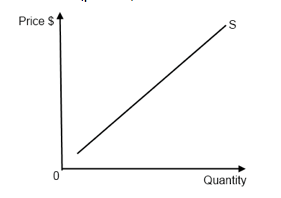Law of Supply Definition
The law of supply is the microeconomic theory stating that all else being equal, as the price of a good or service increases, the number of goods or services offered will also increase. The law of supply states that as the price of an item goes up, and thus profit increases, suppliers will attempt to make more profits by increasing the amount produced. Existing suppliers will produce more or new suppliers will enter the market.
How the Law of Supply Works
The law of supply is one of the most essential concepts in economics. It works with the law of demand to explain how markets can determine prices, and thus how economies distribute the goods and services produced, and in turn, how resources are used to create those products.
What Is a Supply Curve?
A supply curve is a graphic representation of the relationship between product price and quantity of product that a seller is willing and able to supply. Product price is measured on the vertical axis of the graph and quantity of products supplied on the horizontal axis.
To show the individual supply curve for the individual supply is simple:

The supply curve is showing a straight line and an upward, positive slope. This implies that the supply of a product increases with an increase in the price of a product.
The idea is based on the premise that the supply that sellers bring to the market is fixed at any point in time. The quantity supplied and the price to charge are determined solely by consumer demand. If consumer demand rises, the price will rise. Suppliers can then choose to switch new resources to production, which then increases the quantity supplied. In a competitive market, demand sets the price.
Law of Supply Example
For example, a company could supply 1 million items if the price is $200 each, but if the price doubles to $400, they might supply 2 million items. The company would have to purchase more resources in order to produce the 2 million items, but if that does not increase its costs per unit, it would generate more sales and ultimately more profit. If prices increase and costs do not, increasing profits, suppliers will have an incentive to increase the quantity supplied and increase profits.
Put very, very simply: if people want more of something and are willing to pay more for it, more of it will be made available by producers.
Why the Law of Supply Matters
The law of supply is one of the most basic concepts in microeconomics. Coupled with the law of demand, it explains how the market distributes resources and determines the prices of goods and services.




